10 ways coronavirus could forever change the future of travel
Update: Some offers mentioned below are no longer available. View the current offers here.
It's been six months since life in the U.S. changed quickly, dramatically and in ways that were hard for us to imagine until it happened. Air travel dropped 95% from over 2 million daily U.S. travelers to less than 100,000 in a matter of weeks.
And now six months in, there's still plenty we don't know about coronavirus and how the pandemic will ultimately play out -- and eventually, hopefully, one day, end. But we do know that our journey with COVID-19 isn't shaping up to be brief. We also know that whatever future "new normal" awaits, it probably won't be the same as the one we knew when we all entered quasi-hibernation in March 2020.
When this is all finally over, will face masks remain as ubiquitous across the U.S. as jeans? Will we all have forever secret stashes of toilet paper and Lysol wipes tucked away, just in case? Will we ever stop jumping when someone near us coughs, sniffles or sneezes? Many of these — and other even more pressing questions — don't yet have firm answers.
While big unknowns remain, we know that the coronavirus will dramatically shape the future of travel.
From how we book, to where we go, to why we travel, our seat selections on the plane and what financial and safety risks we're willing to assume, we'll emerge from this worldwide crisis different travelers than before the pandemic began.
"As we did after Sept. 11, we will once again need to change how we travel following the coronavirus outbreak. Packing humans into small spaces like sardines and not checking people for even the most rudimentary symptoms like fever will become things of the past," wrote TPG's founder and CEO, Brian Kelly, in an article on the future of travel.
But what will change when we scan our next boarding pass and check into our next hotel room or home rental? Here are some ways travel will change because of this pandemic.
Visit TPG’s guide to all coronavirus news and updates

We'll take that dream trip
We all theoretically know that if you wait too long to take a dream trip, "someday" may never come. But now, that lesson is crystal clear.
Leisure travel went from being as popular as ever at the beginning of 2020 to grinding to a complete and indefinite halt by mid- to late-March. We've seen nearly 200,000 lives cut tragically short. Those factors will combine to create a world in which travelers will no longer put off taking the trip they've been dreaming of for months, years or even longer — once it's safe to explore, of course.
Whether you want to take an epic trip that needs to be booked a year in advance, fly around the world in first class, go on a safari, see the northern lights, finally take that trip to New Zealand, explore the country's best national parks or find out for yourself just how special Hawaii is, the flip side of COVID-19 will be the motivation to finally take those dream trips we've all been putting off.
You can start now by deciding where you want to go, researching the best airline routes and hotels, and determine what sights you'll want to see when you're there. TPG can help you plan trips to just about anywhere, including the Disney theme parks, Miami, New York City, London, the Maldives and more.
For more TPG news delivered each morning to your inbox, sign up for our daily newsletter.
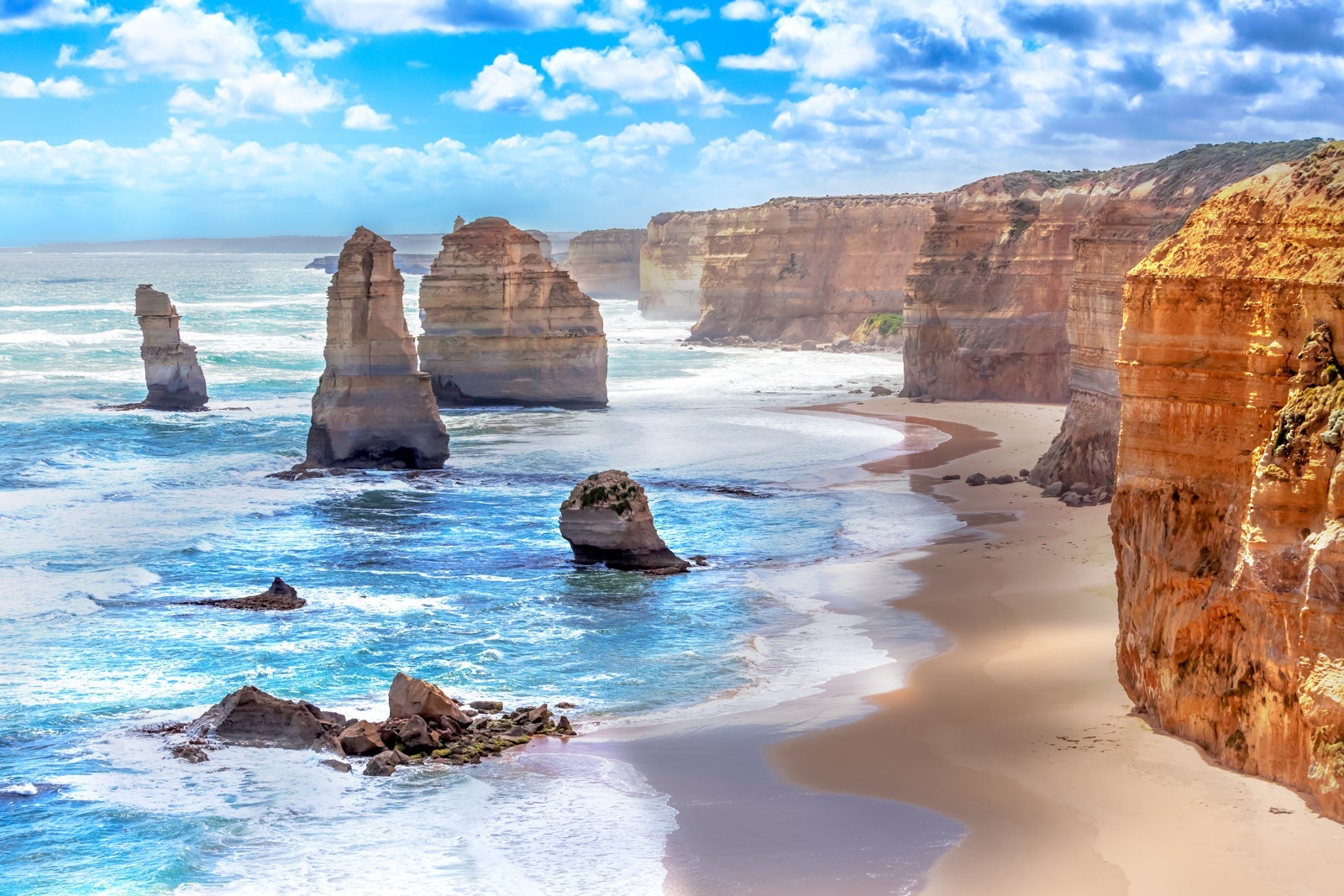
Travel insurance will spike
For many travelers, relying on premium credit cards with trip protections has typically been more than enough to defend against any worst-case scenario moments.
But after the coronavirus upended the travel industry, we all learned a valuable lesson: Epidemics and pandemics are not covered under most types of travel insurance policies. Even independent policies weren't much help for travelers who had to back out of travel plans, especially before airlines and hotel groups began modifying cancellation and rebooking policies to accommodate travelers affected by the outbreak.
By late April, the number of travel insurance policies sold had skyrocketed 200% since January, according to InsureMyTrip. It was the highest increase the company reported in the past 20 years, suggesting that travelers are already rethinking how they'll protect their travel investments.
"Whenever a major event happens, people start to understand the value of travel insurance," Cheryl Golden, the director of marketing, e-commerce and strategic planning for InsureMyTrip, told TPG. She said the increase in travel insurance purchases is to be expected, and that it's an "uptick that holds."
Trip protection and travel delay coverage — the kind you might see attached to your Chase Sapphire Reserve® card — may still be more than enough for travelers. But for those who require additional peace of mind, the best way to safeguard your travels is a "cancel for any reason" travel insurance upgrade.
This policy, sometimes referred to as CFAR, will typically cost 40% more than your standard insurance policy. But you'll be able to back out for any reason, whether there's a pandemic sweeping the planet or you've simply changed your mind about taking that trip. (Just be sure to read the policy's exclusions list and make sure pandemic/epidemic isn't listed as a non-covered reason.) Golden said CFAR, paired with a comprehensive plan, is a traveler's "best bet." Just keep in mind, these policies rarely cover the entire cost of your trip.
Some travelers who never bought stand-alone insurance before, are already deciding it is worth the investment.
Related: Will future pandemics be covered by travel insurance? Experts say yes
Multigenerational travel will grow
When this is over, it will have likely been many months since families have really gotten a chance to be together. They say that absence makes the heart grow fonder, and the post-pandemic world may see an already-growing travel trend of bringing many generations together rise to the next level.
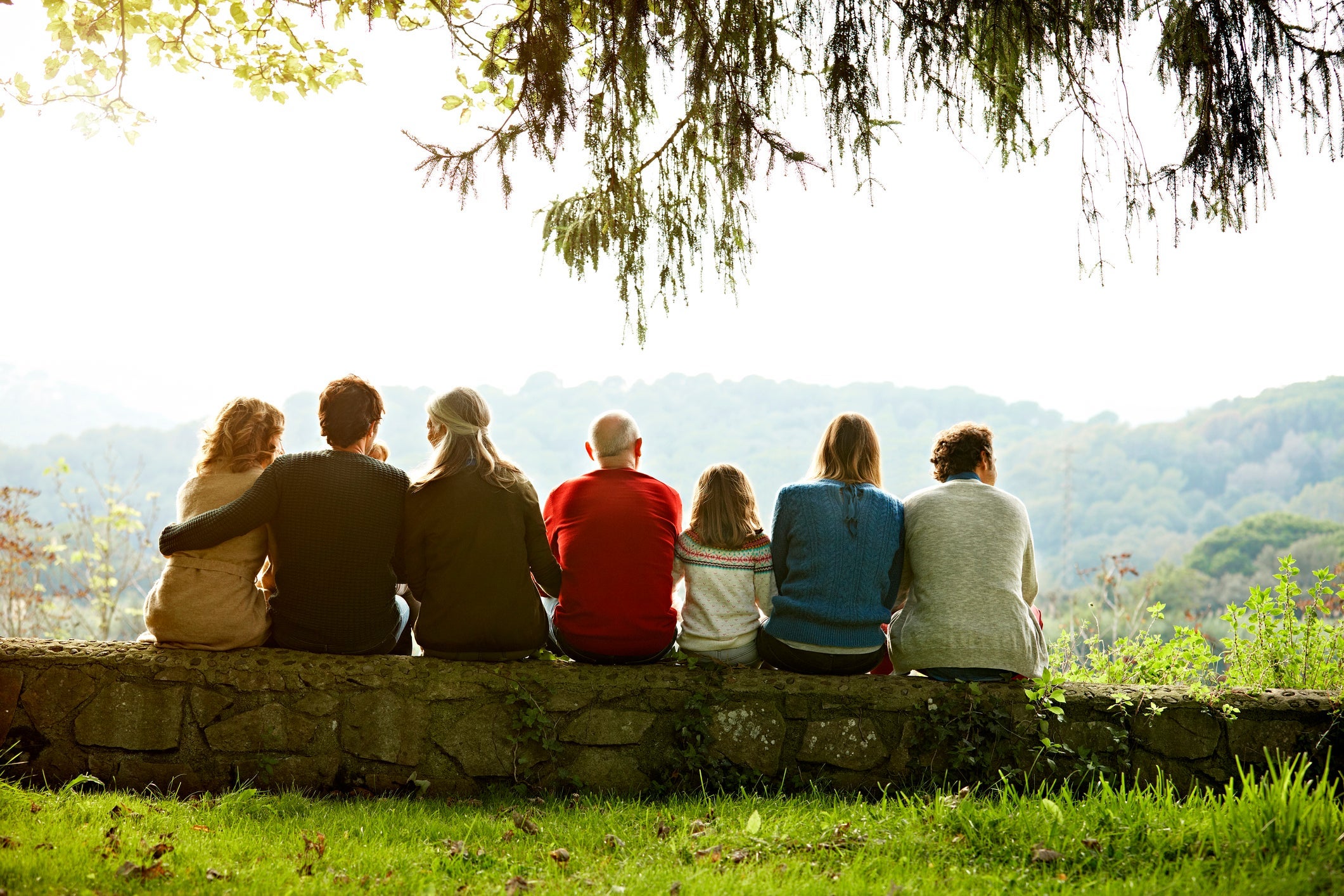
According to a trend report released in October by Virtuoso, a luxury travel agency network, multigenerational travel was already the most popular travel trend of 2020. Nearly 60% of Virtuoso travel specialists surveyed in February said they expected family travel sales to increase — and that was before we were all told to stay inside and only hang out with our loved ones on Zoom.
It takes planning, coordination and commitment to make a multigenerational trip work, but we bet that families are going to break those barriers down and head off with parents, grandparents and children to enjoy the world beyond the confines of their own backyards. The value of time together (as well as photos together), is apparent and we'll see no shortage of multigenerational trips and travel providers catering to that demographic.
While you might not want to put a deposit down on a group trip now, it's the perfect time to talk with family members about where they'd like to go, if they'd prefer a vacation house rental or an all-inclusive resort, and what sort of activities should happen during the trip.
Related: How to use points to plan multigenerational trips
Third-party bookings will shrink
Over the years, travelers have been fans of using third-party booking sites, known as online travel agencies (OTAs), to book all sorts of travel in one place. These companies (think: Expedia, Orbitz, Hotels.com and others) act as middlemen, allowing travelers to compare prices across airlines, hotels, car rentals and more.
If you book through an OTA and something goes wrong, however, you have not only the travel provider's policies to contend with but also the rules of the agency through which you booked. Though major agencies have altered their cancellation and change policies in kind with changes in airline, hotel, cruise and car rental policies amid the coronavirus pandemic, it's an extra piece of the puzzle that needs to be figured out before a trip is changed or canceled successfully.
We've seen reports of people having difficulty changing and canceling trips booked through OTAs, often involving hours of calls to the OTA, then to the airline, then back to the OTA and so on. We predict that, in the future, people will feel more secure booking directly through the travel provider of their choice, especially now that major airlines have eliminated change fees for good, so that in the event something goes very, very wrong like this again, customers will only have to deal with the company that's providing the transportation or lodging.
Related: Guide to coronavirus airline changes and cancelations
Frequent flyer accounts will be drained
While the process of living through COVID-19 is unfortunately far from over, we've already seen that frequent flyer members have started to build up those mileage account balances and research where to spend them.
According to a recent SEC filing, the total number of Delta Skymiles redeemed in the first half of 2020 was down 78% over the year before. However, sales to American Express declined by less than 5%, as Delta SkyMiles members continue to use co-branded Delta Amex credit cards to earn miles. Assuming this trend plays out around the industry, there's going to be some miles to burn when the time is right.
When you combine the 2020 hoarding of miles with the 2019 trend away from set award charts to dynamic award prices that can vary day to day with the economic implications and pent-up travel demand caused by COVID-19, we expect to see people use their frequent flyer miles in droves when it's safe again to travel.
Dubai and Maldives became the most popular Expert Flyer manual searches performed in August as reopening plans for those countries were announced (and included Americans).
It's not just us. Earlier in the pandemic, View from the Wing's Gary Leff has told TPG, "There’s definitely going to be a desire to travel after being cooped up, to experience places and things that have been off-limits and to connect with friends and family that we haven’t seen. There’s also going to be a tendency to want to rebuild household balance sheets, conserve cash and replace some savings, and that means miles and points take on greater importance in making trips happen."
"There’s going to be fantastic award availability, travel won’t all come back at the same time [and] planes are going to be empty for a while," Leff added.
While air travel and related award availability searches for mileage tickets on Expert Flyer (owned by TPG's parent company Red Ventures) are still down well below pre-pandemic levels, there has been a recent interesting trend. In August, Dubai and Maldives became the most popular Expert Flyer manual searches performed as those countries announced reopening plans that included Americans.
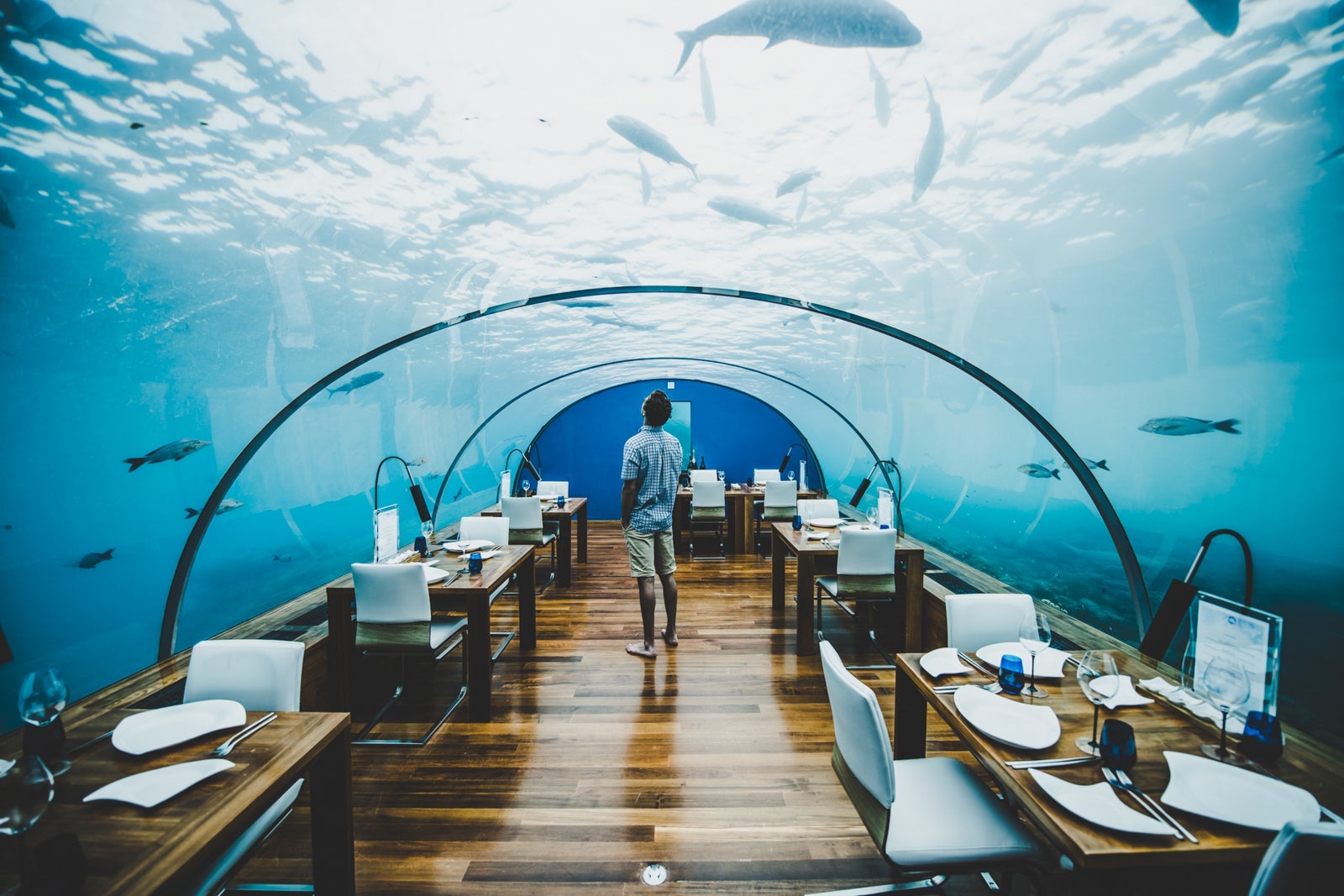
As more countries open their borders to those in the U.S. with miles to burn, we expect award travel bookings to increase.
To that point, Leff also said that, while programs will likely be "printing points to encourage travel" further down the road, devaluations may follow, so sitting on miles isn't advisable.
Related: 4 scenarios that might make travel possible
Hygiene and sanitation will be a top priority
If you weren’t a habitual hand-washer before the coronavirus outbreak, we’re betting you’ll be one now. And those “germaphobes” who regularly wiped down their airplane seats? They won’t seem so over-the-top in retrospect. It’s Naomi Campbell-style from here on out (minus the hazmat suit — maybe).
But it's not just personal hygiene that's landed under a microscope. The travel industry is also under incredible scrutiny, and many travel providers are already adapting so they can prove to guests they're safe when travel opens again.
“For the hospitality industry to restart successfully, the key to success is instilling consumer confidence that a hotel campus is clean, safe and secure,” Scott Berman, principal and industry leader of the Hospitality & Leisure Group at PricewaterhouseCoopers, Miami, told TPG. Berman said this could lead to strict guidelines that could eventually become "brand standards.”
Related: How hotels can prove to guests they're safe after coronavirus
Hotels have worked to show their guests they're doing all they can to raise sanitation standards and maintain social-distancing protocols in their properties. The four major hotel chains -- Hilton, Hyatt, IHG and Marriott -- have all rolled out cleaning and sanitation plans that lay out specific steps for each hotel to take to keep guests and employees safe. Now, across the board, you'll notice disinfecting wipes in public spaces and outside elevator banks, staff wearing personal protective equipment, electrostatic sprayers for deep room cleanings between guests, more digital keys and mobile check-in and check-out and more.
Airlines have also already made significant shifts to promote cleanliness, hygiene and safety, with all major U.S. airlines having implemented new cleaning and sanitation procedures to reduce the spread of the virus. And, before a recent Emirates flight, passengers received a blood test to check for COVID-19 before their flight was allowed to leave, a dramatic departure from normal as the aviation industry tries to find its footing amid the coronavirus pandemic.
Experts ranging from travel industry analysts to epidemiologists all seem to think the coronavirus could usher in a series of permanent changes to the way we travel. At least in the near term, this will likely include health checks at the airport before boarding and face mask requirements for flight crew and passenger (JetBlue was the first U.S. airline to implement this policy).
Even Airbnb has rolled out new cleaning procedures, and cruise lines are likely to embrace measures similar to those being deployed by airlines, including preboarding health screenings, reduced capacity on ships, enhanced onboard cleaning processes and perhaps even a farewell to the beloved self-service buffet.
Related: Cleaner skies ahead: The unexpected way that coronavirus is transforming the airline industry
We'll head outdoors and hit the road
After spending months at home, travelers are craving fresh air — and lots of it. National parks and campgrounds have seen a massive influx of visitors, and this newfound appreciation for the outdoors will likely continue.
Misty Belles, managing director of global public relations at Virtuoso, told TPG that as consumer confidence builds, domestic travel will be the first sector to expand. "Wide-open spaces like national parks and ranches will be popular," she said.
"Nature vacations will be big," echoed Laura Davidson, owner and president of New York-based travel public relations firm LDPR. "People will explore their own cities, regions [and] parks first — and then the drive market will kick in."
Like outdoor adventures, road trips have also soared in popularity.
Though airlift has increased, many travelers still find it easier, more convenient and more comfortable to plan road trips within driving distance from home. Road trips may be especially appealing to those with underlying health issues, or people who might at first be skeptical about flying. It’s the perfect time to finally plan and take one of those great American road trips that everyone always talks about.
Cruises will be shorter and closer to home
Most major cruise lines around the world have been in shutdown mode since March, and it could be at least a few more months before many of them start up again. But when they do, they're likely to come back with a significantly changed lineup of itineraries.
While major cruise operators such as Royal Caribbean and Carnival Cruise Line aren't tipping their hands yet on their comeback plans, we're expecting to see a distinct shift to shorter, closer-to-home sailings -- at least initially.
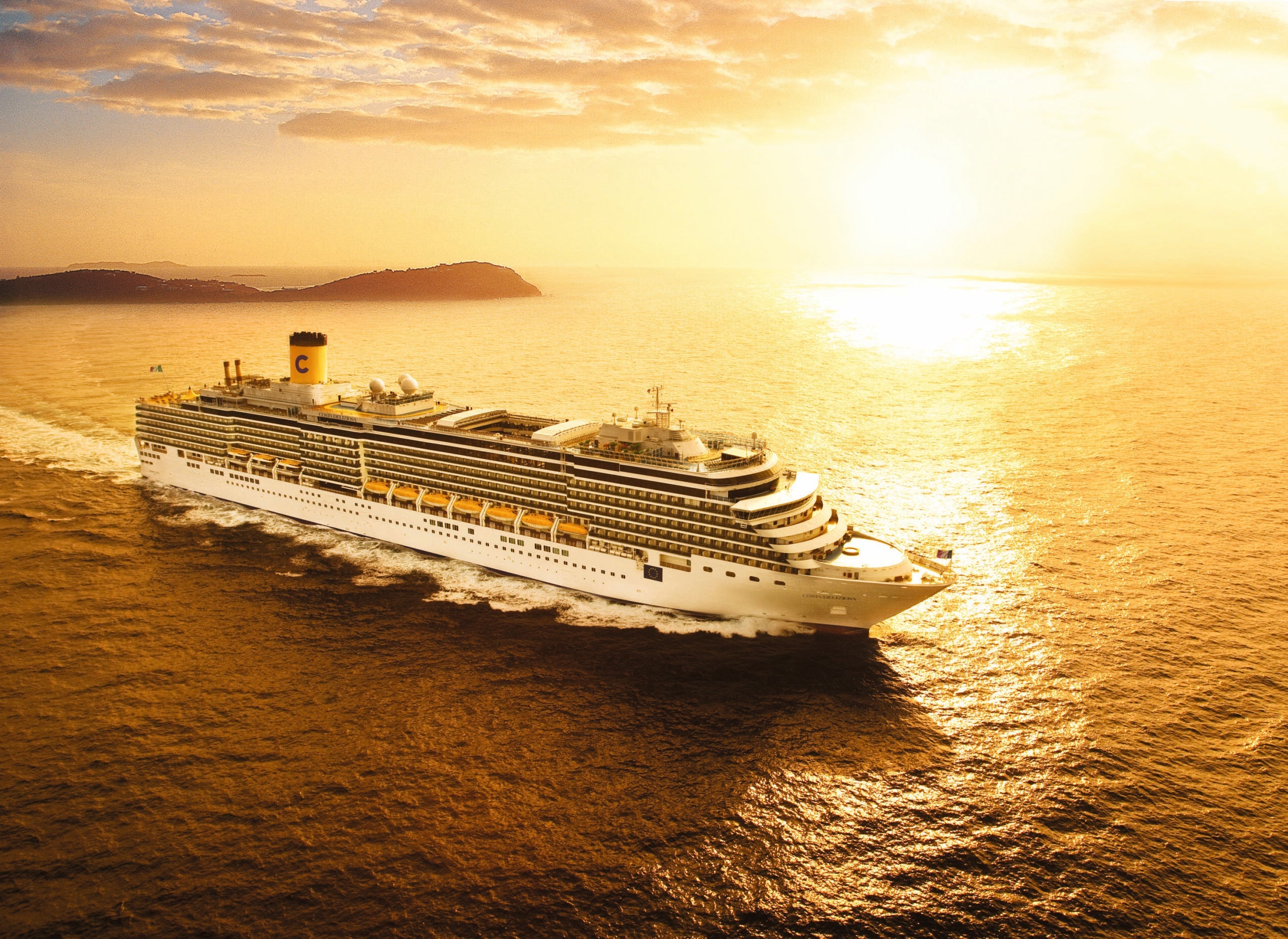
Already, that's what we're seeing with the handful of lines that have restarted operations around the world. Asia-based Dream Cruises, for instance, has been tiptoeing back into cruising in recent weeks with very short sailings -- just two to three nights in length -- out of Keelung, Taiwan, that only are open to local Taiwanese travelers. The sailings go no further than a couple islands off the Taiwan coast. Across the world in Italy, Costa Cruises has resumed limited cruises out of Trieste in recent days that only go as far as other Italian ports and only are open to Italian travelers.
The closer-to-home trend for cruising will happen, in part, because travel restrictions will likely remain in some parts of the world for some time as the new coronavirus lingers in hot spots, making long-distance sailings that include stops at multiple countries complex to operate.
Some lines that specialize in such longer, more-complex sailings, such as Cunard, already have canceled sailings well into 2021 as they see the handwriting on the wall. In a video statement posted in August on the line’s website, Cunard president Simon Palethorpe noted the “sheer complexity of world voyages, visiting many countries one after another, each with their own evolving travel regulations” as a hurdle for Cunard resuming operations.
Short, close-to-home cruises also are more affordable than long, far-off sailings -- not just in terms of their fares but in terms of the cost of flights to reach them. At times of economic uncertainty, as we are experiencing now, demand for shorter cruises traditionally has grown.
Other changes to cruising that are on the way include new health screenings for passengers, enhanced onboard cleaning regimens and a suspension of self-serve food service.
Already, a couple lines that restarted operations are making every passenger take a COVID-19 test at the pier before they board a ship, and they're turning away those who test positive. Some lines also are forbidding passengers from getting off their ships in ports unless they are on a cruise-line organized tour.
Travelers will want more space
There's no question that from route maps to status extensions to how we wipe down our seats, aviation looks very different right now. But what about in the long term?
The first thing that comes to mind are the lines we all experience when traveling. From check-in to security and boarding, air travelers pass through more than their fair share of lines. How will we feel about this after months of being told not to stand within six feet of others? Some lines will be unavoidable. Even if the agency wanted to space them out, TSA security lines have no room to grow at some airports. Ditto for customs and immigration queues.
But it seems likely some lines might be reimagined. Could this speed up facial recognition for boarding? Will the privacy advocates let it? It’s hard to see exactly how it all might go, but flyers may demand a rethink for all of those processes that herd us uncomfortably close to each other. This could also be true for theme parks, some of which have already utilized virtual queues to minimize the need for physical lines.
Another area where airlines could do some reimagining is the middle seat. Throughout the 1990s and into the early 2000s, your odds of getting an empty middle seat were decent.
But then the internet made it easier than ever to sell flights, and once airlines figured out how to put $39 fares in front of everyone, those seats sold like hotcakes. Load factors (a measure of how full planes are) soared to levels airline executives never thought possible. That was good for the airlines’ bottom line -- but bad for travelers who liked some free elbow room.
But airlines are now evolving when it comes to the middle seat. Just look at the seat map that shows the middle seat blocked out on this Delta flight to give the other passengers physical distance. American Airlines has also been blocking some middle seats for the same reason.
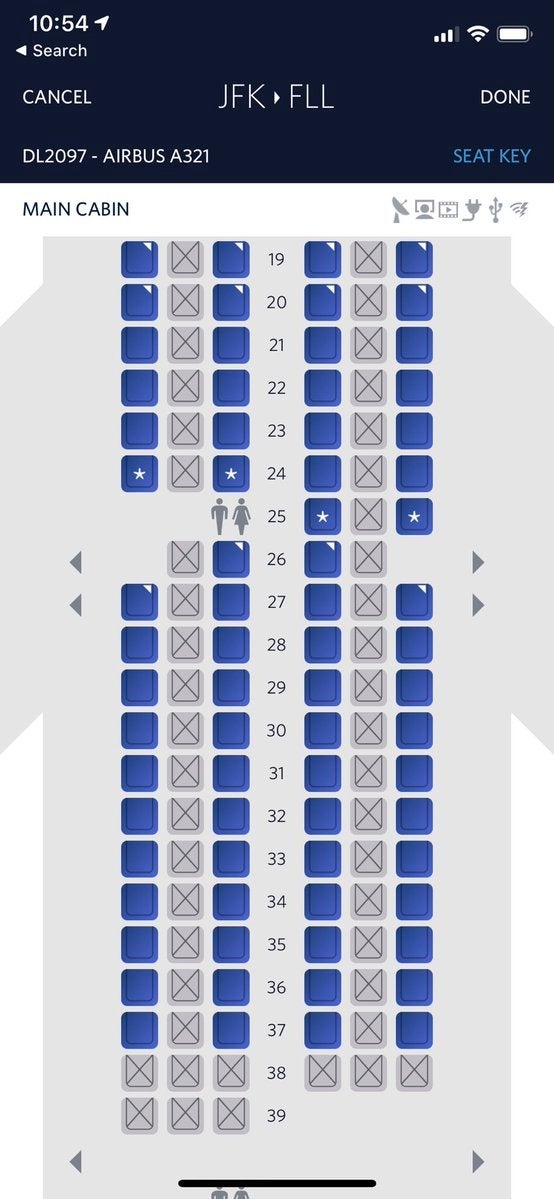
Even once the world "gets back to normal," experts say demand could take years to return, which is awful for the airline industry. It does, however, mean the chances of finding an empty middle seat and more distance from other travelers might be fully back in play.
Related: The hidden costs of saying goodbye to the middle seat
We'll all be better about taking paid time off
The U.S. is infamous for having poor paid time off (PTO) policies compared to other countries. But, even with a limited number of paid vacation days, many U.S. workers still don’t take full advantage of their time. 768 million days went unused and 236 million were completely forfeited in 2018, according to research from the U.S. Travel Association. That's a lot of unused time.
We expect that travelers will start to value their vacation time even more. Hopefully, those who have missed out in the past will have more time to plan a trip for the future and take advantage of the days they do have. Travel experts agree that, when leisure travel resumes, Americans will finally take advantage of the vacations they deserve.
Not only will Americans be better about taking days off, but living, working and learning arrangements will continue to be more flexible as a result of the pandemic, likely leading to longer stays in a given destination. Hotels -- in fact entire chains -- have been eager to capitalize on this new trend, offering "workcation" packages to entice people to book a longer stay.
Bottom line
From theme parks to airports, hotels and beyond, the world of travel will have to change as the world eventually reopens. Precisely what those changes might be remains to be seen.
Reported by Nick Ellis, Summer Hull, Liz Hund, Melanie Lieberman, Ben Mutzabaugh and Gene Sloan.
